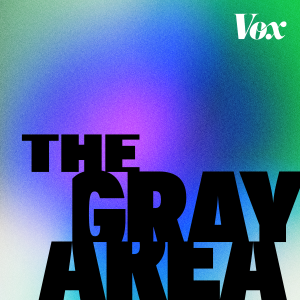
The Gray Area with Sean Illing
Society & Culture:Philosophy

Dr. Leana Wen on why the opposite of poverty is health
 2016-09-20
2016-09-20
Download
Right click and do "save link as"
There are a couple of ideas that drive how I see policy and politics. One of them is that most of what drives health outcomes has nothing to do with what happens in doctor's offices. Another is that we overestimate the importance of the president national politics and underestimate the important of city officials and local politics.Dr. Leana Wen — and this episode — stands at the intersection of those two ideas.Wen is the Baltimore City Health Commissioner — a job she got when she was only 31, after a stint as an ER doctor, and a background as a Rhodes Scholar and medical activist. Her work in Baltimore coincided with the aftermath of Freddy Gray's killing, a brutal opioid epidemic, and a renewed focus on urban health disparities (there are counties in Baltimore that have higher infant mortality than the West Bank).In this conversation, we talk about all that and more. Here's some of the more:-Why her family moved to Utah after leaving China after the Tiananmen Square protests-Whether America's culture of sharing problems and working through pain is actually healthy-How she learned to deal with a serious speech impediment (and how I did)-What it was like growing up in Compton in the early 90s-How Bill Clinton’s autobiography changed her life-What motivated her to become a doctor-How she squares her idea of herself as an activist with being a government official-The unexpected process by which you get a job like Baltimore City Health Commissioner-How the medical community’s understanding of pain has changed, and how that led to the opioid crisis-The misunderstandings of outdated ideas that have made the opioid crisis so much worse-Why she prescribed a drug to treat heroin overdoses to everyone — yes, everyone — in Baltimore-Her thoughts on the paradox of Baltimore’s great health institutions and its huge health disparities-What disturbs her about the patterns that lead up to infant mortalityI particularly want to call out Wen's discussion of the opioid crisis, and what needs to be done about it. It's one of the clearest and most impassioned tours through that epidemic I've heard, and it's worth listening to this conversation just for that.
view more
More Episodes
The Joe Biden experience
 2020-11-07
2020-11-07
 2020-11-07
2020-11-07
Chris Hayes and I process this wild election
 2020-11-05
2020-11-05
 2020-11-05
2020-11-05
Nate Silver on why 2020 isn't 2016
 2020-10-29
2020-10-29
 2020-10-29
2020-10-29
The case for Trump’s foreign policy
 2020-10-12
2020-10-12
 2020-10-12
2020-10-12
How a climate bill becomes a reality
 2020-10-05
2020-10-05
 2020-10-05
2020-10-05
The meat we eat affects us all
 2020-10-02
2020-10-02
 2020-10-02
2020-10-02
A dark, dangerous debate
 2020-09-30
2020-09-30
 2020-09-30
2020-09-30
012345678910111213141516171819
Create your
podcast in
minutes
- Full-featured podcast site
- Unlimited storage and bandwidth
- Comprehensive podcast stats
- Distribute to Apple Podcasts, Spotify, and more
- Make money with your podcast
It is Free
- Privacy Policy
- Cookie Policy
- Terms of Use
- Consent Preferences
- Copyright © 2015-2024 Podbean.com


